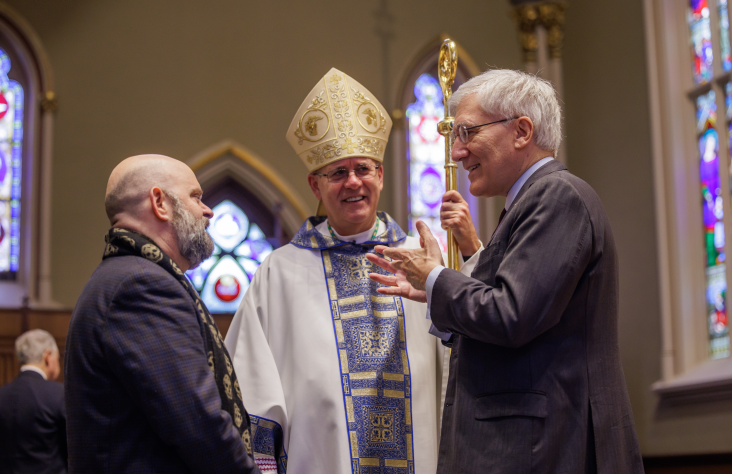December 16, 2009 // Uncategorized
U.S. bishops again urge ban on abortion coverage in health reform
WASHINGTON (CNS) — The U.S. bishops again have urged U.S. senators to put Hyde amendment language into proposed health care reform legislation to prohibit federal funds from being used for elective abortion coverage.
Such a step, they said, would align the legislation with policies now governing all other federal health programs and with the just-passed appropriations bill.
The bishops urged the action in a Dec. 14 letter from Cardinal Daniel N. DiNardo of Galveston-Houston, chairman of the U.S. Conference of Catholic Bishops’ Committee on Pro-Life Activities.
In a separate letter Dec. 14, Cardinal DiNardo and the chairmen of two other USCCB committees urged the Senate to accept an amendment that would allow states to lift the five-year waiting period for legal immigrants to obtain Medicaid coverage.
On abortion, the bishops noted that senators voted overwhelmingly Dec. 13 for the Consolidated Appropriations Act, which contains Hyde language banning federal funding for health coverage that includes elective abortion and maintains laws protecting conscience rights.
A major problem with the current health care reform legislation in the Senate, Cardinal DiNardo’s letter said, is that “it explicitly authorizes the use of federal funds to subsidize health plans covering elective abortions for the first time in history.”
“Health care reform is too urgently needed to be placed at risk by one lobbying group’s insistence on changing the law,” the cardinal added.
On Dec. 8 the Senate voted to table a bipartisan abortion amendment to its version of health care reform legislation.
The bishops said their three top priorities for health reform are respecting life and conscience, ensuring affordability and giving immigrants fair access to health benefits for which they pay taxes.
On immigrants, the bishops urged passage of an amendment by Sen. Robert Mendendez, D-N.J., which they said would “ensure adequate coverage to as many as 600,000 legal immigrants each year who otherwise may not be able to access such coverage.”
“We believe that legal immigrants, who work, pay taxes and are on a path to citizenship, should have access to health care services, such as Medicaid, for which they help pay,” said the letter from the cardinal and Bishops John C. Wester of Salt Lake City and William F. Murphy of Rockville Centre, N.Y.
“Moreover, providing low-income legal immigrants access to Medicaid would help ensure that the general public health of immigrant communities and the nation is served,” they added.
Bishop Wester chairs the USCCB Committee on Migration and Bishop Murphy the Committee on Domestic Justice and Human Development.
Sent to the senators along with Cardinal DiNardo’s letter was a sheet containing quotes from senators who said during debate on an abortion-related amendment proposed by Sen. Ben Nelson, D-Neb., and others that the Nelson amendment went too far.
But in their vote on the appropriations bill, “almost all Democrats, including almost every senator who claimed the Nelson amendment’s policy went too far, voted in favor of that exact policy,” the cardinal said.
“These senators voted to retain the actual current language of the Hyde amendment, and of the parallel provision governing abortion in the Federal Employees Health Benefits Program — and that language clearly requires a policy in all other federal health programs that is identical to that of the Nelson amendment,” he said.
The “only substantive difference” between the current “noncontroversial and widely supported” provisions and the Nelson amendment “is that the latter explains at length that (a) it does not prevent purchasers who do not receive federal subsidies from buying a health plan including elective abortions … and (b) it does not prevent purchasers receiving federal subsidies from buying separate supplemental abortion coverage with their own funds,” the letter said.
After a break of several days to consider the appropriations bill, the Senate resumed debate on the its version of health reform legislation Dec. 15. Senate leadership hoped to bring the legislation to a vote before the Christmas recess.
The best news. Delivered to your inbox.
Subscribe to our mailing list today.





